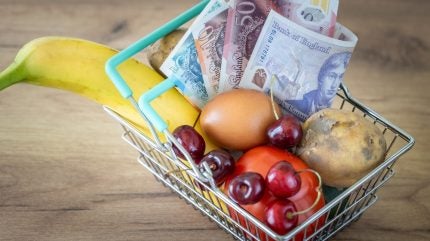
UK consumer price inflation stayed at 3.8% in September, matching August, as falling food prices offset higher transport costs, including air fares. Food inflation slowed to 4.5% year on year, while the broader CPIH measure remained at 4.1%.
The Office for National Statistics (ONS) said monthly CPI was unchanged, reflecting a mixed picture across categories.

Discover B2B Marketing That Performs
Combine business intelligence and editorial excellence to reach engaged professionals across 36 leading media platforms.
British Retail Consortium (BRC) analysis noted that easing food price rises were countered by dearer flights. The group also highlighted early signs of price pressure in clothing and footwear, even as some staples such as rice, bread and cereal fell month on month.
Retailers warn of thin margins and call for business rates reform
The BRC said retailers are running on tight margins after an estimated £7bn increase in taxes this year and urged the government to use the Autumn Budget to curb costs facing the sector.
It called for business rates reform that delivers a meaningful cut across shops, arguing this would support value for customers without pushing prices higher. BRC
While food inflation is slowing, the BRC cautioned that it is likely to remain elevated into 2026 as past fiscal measures continue to feed through supply chains and wage bills.

US Tariffs are shifting - will you react or anticipate?
Don’t let policy changes catch you off guard. Stay proactive with real-time data and expert analysis.
By GlobalDataIndustry surveys echo the split picture on costs, with the ONS producer price index showing output prices for food products rising by 4.6% in the year to September, only a touch below August’s pace.
What today’s figures mean for the autumn budget and rate outlook
The flat CPI reading surprised some forecasters who expected an uptick on fuel and fares, but it keeps inflation well above the Bank of England’s 2% target.
Markets interpreted the data as consistent with scope for rate cuts if disinflation resumes, though policymakers remain sensitive to persistent services and wage pressures.
International institutions have warned the UK could record the highest inflation in the G7 this year, underlining the stakes for the 26 November Budget.
The IMF’s latest outlook points to UK inflation averaging above peers in 2025, reinforcing calls from retailers for policy moves that lower operating costs and help anchor prices.





